Writing Lab: Revenge of the Focus Sentence
Work in Progress: On vulnerability, surrender, and trying again.
I set out to write about focus sentences, which I mentioned in Monday’s Digest. I wrestled with that piece, it wrestled back, and this personal essay about focusing, failing, and refocusing with my work in progress is what we could both agree on. I hope it’s useful. Happy Weekend, and see you on Monday with the week’s Digest. xo Debbie
The Unite the Right Rally in Charlottesville, Virginia in August 2017 was a turning point for me as a writer. Once I had collected myself from the disbelief of those two days, I asked my editor, “Have you ever heard of The Lost Cause?” No, he hadn’t. Nor had anyone else I asked, outside of those in the South, and even then, only a few I asked really understood what the Lost Cause was. Is.
So I decided to write about it, to point at the hole and to write about my own experience Growing Up Southern, in the lap of the Lost Cause, and why I have spent most of my adult life working to untangle its long grasp.
I wrote a twelve-page proposal for this book, sent it to my editor, and sold it in 2019, just before the publication of Kent State. Three months into 2020, while I was in Texas promoting the publication of Kent State on a two-week book tour, the country shut down at the beginning of a global pandemic. Despite heroic efforts by many at my publishing house and those intrepid souls who punted along with us, setting up radio interviews and figuring out this new business of online book launching, people (including me) were focused on staying alive and making sure their loved ones did, too.
I published four books “into the pandemic,” as friends and I say as code for how poorly our books fared in such a cruel about-face from the usual fanfare we could make and enjoy and share. We published into a void.
I was writing into the void as well, or, more accurately, I wasn’t writing at all. I know I’m not alone in this, I know we all struggled through that time, struggled mightily. Many of us who weren’t on the front lines or dying were having trouble focusing and concentrating on much of anything beyond what will happen to the world? And to us?
Back up a moment to the fall of 2019, when there wasn’t a whiff of a pandemic on the horizon, when I published Anthem, book three of the Sixties Trilogy. I toured for this book, too, and was often on a panel where people in the audience asked me what I was writing next. That was easy to answer, so I told them, with great surety and much bravado, such flair, so much listen to this! — “I’m writing a book about the Lost Cause of the Confederacy and the Rise of White Supremacy.”
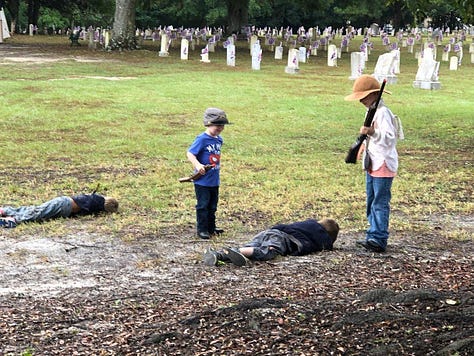
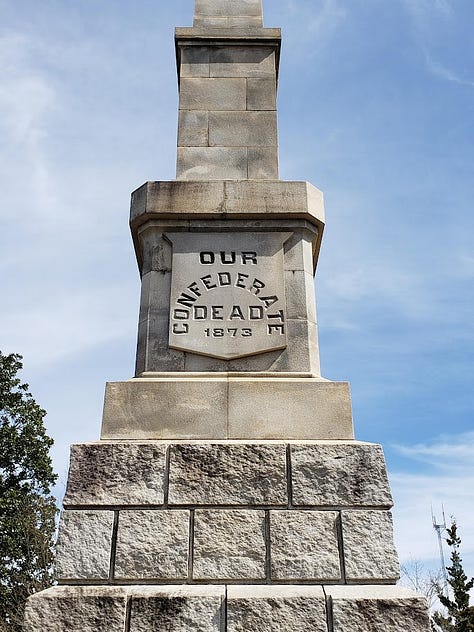
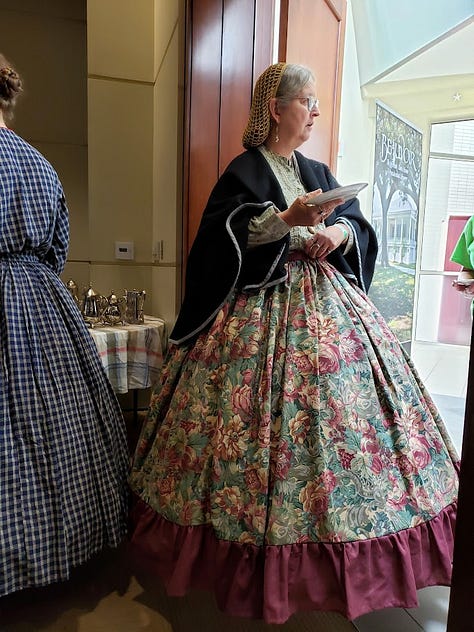
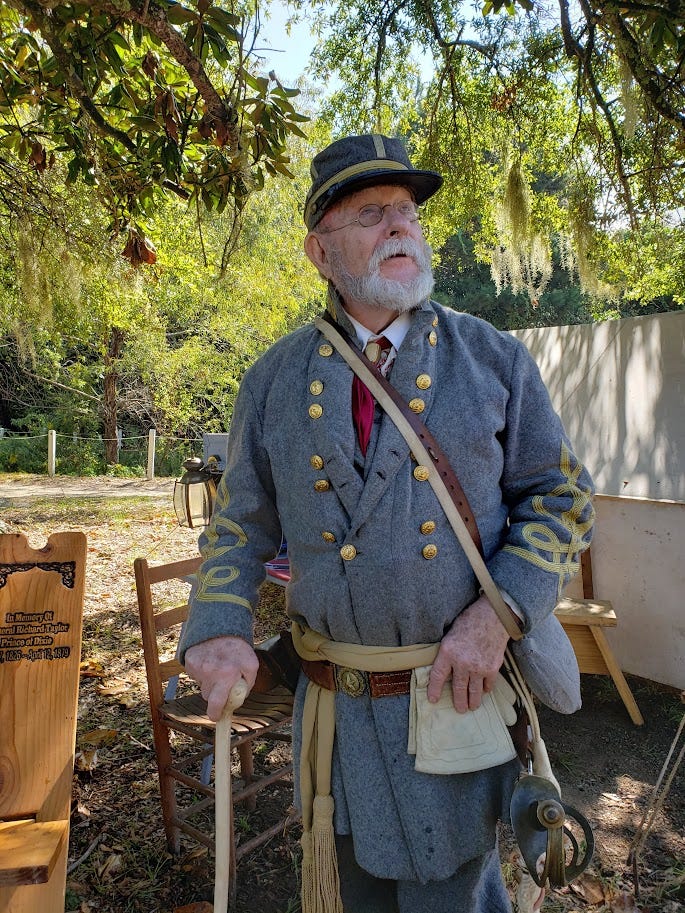
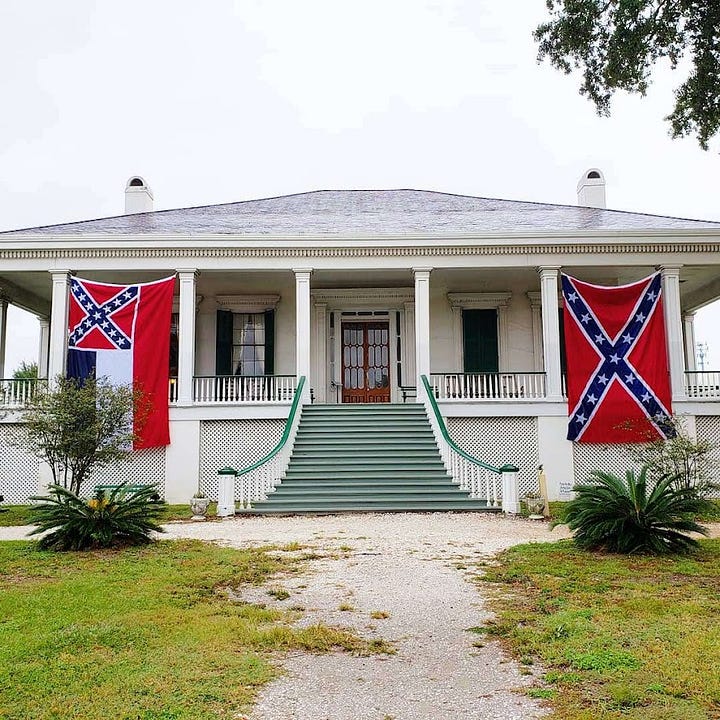
Oooooooo. You could hear the gasps in the room, the sucking in of air, the shifting in seats, at this White Southern Author (and a woman, too!) saying she’s going to do this Hard Thing and write about White Southerners and how they created a myth after the Civil War, the myth that the Southern cause for war was noble and just; it wasn’t about slavery, it was about states’ rights, i.e.we’ll teach that to generations of our young, we’ll rewrite our textbooks and Sunday School materials so our children grow up firm in the understanding that our Negroes were well-cared for and happy (and inferior to us) and our ancestors will never be dishonored by defeat; and yes, there is a rising of White Supremacy, we saw that at Charlottesville, because the press reported on it, the footage was riveting, and Oooooooo, wow, we’ll watch for that book.
People are still watching for that book, and so am I. I have been writing it, diligently, for the past four years. Five, now. And even though I’m always telling my students that stories take the time they take, I can hardly make myself believe that about my own work. I have stopped and started again dozens of times.
One of those times was on January 6, 2021, at the storming of the US Capitol, when a mob of the descendants of those myth makers, many of them White Supremacists, some even from the Unite the Right rally in Charlottesville, tried to stop the counting of the Electoral College votes in Congress that would officially declare the 2020 election for Joe Biden.
My agent called me the next day. “Are you sure you want to be writing this book right now?” he asked me. I could feel the concern for my person in his voice, as we had talked several times about the subject matter coupled with the pandemic and lack of concentration, and I’ll toss in the burnout I was addressing after 22 years on the road to make my living. It had already been a lot.
But, I reasoned, I had delivered books while on deadline and writing them on airplanes and in hotel rooms, after standing in front of rooms full of young readers and their teachers or in writing workshops, giving speeches, rolling up my sleeves in professional development days with teachers and librarians, after waking each morning and not remembering what city I’m in, for weeks at a time, hell, I was home now, and so was everyone else!
So, in my stunned state on January 7, I assured my agent I could do it, that it was my job, I had a contract, and I would deliver this manuscript soon, that I wanted the book done and out in the world.
And then I stopped writing. I read what I had on paper so far, what I had sent my editor in August 2020, and what I was now revising, with his notes to hand. I thought about how much I loved that August draft. At the same time, I knew it felt totally inadequate to the day.
I’m a “foundations” writer. In my research, and in my writing, I’m always looking for the origins of a story, for the why, the reasons, the facts, the whole picture, and it was clear to me that, in trying to paint for readers the origins of the Lost Cause of the Confederacy, I was coming up smack against current historical events that needed addressing, and that were too big to write about without the context surrounding them, which would make my book too long, unwieldy, and unread.
I had written a prose poem to begin the book, to let you know what I was going to be addressing, and to set you up with context.
Then I had included a full page of the sheet music to “America the Beautiful.”
Then the first line:
There was a time when there were no Americans.
America doesn’t get more foundational than that.
It was the opening to a soliloquy of sorts. From there, I segued to Charlottesville on August 11 and 12, and flowed back and forth from history to those days. I included bits about me and the Lost Cause: The story of Annie Mae, who worked for my grandmother in Mississippi; how I attended a junior high school in Maryland named for Roger B. Taney, a Chief Justice of the Supreme Court, the Court that declared enslaved persons (including Dred Scott) were not citizens of the United States, but the property of their owners; the high school I attended in Charleston, South Carolina, where Strom Thurmond kept an iron grip on segregation until (more) federal legislation, coupled with National Guard troops, finally integrated my high school in 1968 and there were riots on the school grounds, and I was afraid to go to school; how, in the same city, seventeen years later, a 21-year-old white man, a self-avowed White Supremacist and neo-Nazi, would shoot dead nine black worshipers at Bible Study at Mother Emmanuel AME Church, and two years after that, the White Supremacists would come out of hiding en masse in Charlottesville, Virginia chanting “Jews will not replace us!” and shouting those Fourteen Words: “We must secure the existence of our people and a future for white children.”
I loved the opening chapters of my book.
My editor did not.
It was a structural thing, a pacing thing… a focus thing. So we set up a meeting.
We were so glad to lay eyes on each other during a Zoom call that fall of 2020. I felt like crying, partly because meeting via Zoom was so weird, so unnatural, so strange, and because I knew by then, this was going to be a long haul through very difficult terrain. I admitted to being stuck.
“Start with Charlottesville,” my editor said. “Start there. See what it gives you.”
So I tucked America the Beautiful away. I tucked away my contextual, poetic beginning. I rewrote. And rewrote. And rewrote.
My thoughts ran on two major tracks:
This is more than one book.
I am not writer-enough to write this book.
Maybe I wasn’t, in 2020, but I am a different writer today. I am more rested, for one thing. I am deeply researched (Pinterest). I can concentrate and focus. In 2022, I wrote a “palate-cleansing” novel full of home economics and loving, wacky families, and that made me happy.
In focusing my story on the Unite the Right rally, I more-than-ever think this is more than one book, and I have since met with my editor — in person! — and we have agreed on that. Which has, once again, changed my focus.
We have agreed that I will deliver the manuscript when it is ready. At one point, a couple of years into rewriting, when it all felt like it was just too much, I got teary on an editorial phone call when talking about the heaviness of this book and the world, the horror of Charlottesville, of January 6, of our country’s lean into the meanness and ugliness of our underbelly, and I said to my editor, as I mopped my tears and blew my nose, “Who knew I was such a patriot?”
“I did, Debbie,” he said. And those three words did more to lift me back to the page than reams of emails could have.
So I am once-again rewriting. Refocusing. I have begun with Charlottesville, Friday night, August 11, 2017. The torches are blazing and my characters are in the thick of it. The book is a novel, fiction, based on true events and true to the people who were there.
My editor says YES. So I am in the thick of it, too. It is going… well, it is going. I am committed to it. I am dedicated to it, and I will finish it.
It might even be my best work.
{This is the second of two free-to-all posts this week in the Writing Lab section of Storybelly. The Lab is always open to all who want to dive deeper into writing (or teaching writing) with me, with others, and it comes to you every week (in addition to the free Digest) with a monthly or annual subscription to Storybelly… but this week, (except for the Lab Chat, where we are cultivating a safe space for Lab Coats), we are open to all, so y’all can see what we’re up to over here. We’ll open the Lab once a quarter as well, to further entice you to come tell your story, the story only you can write.} Onward.




I am taking a very deep breath for you and all of your readers. This will be an important book. A story we are living every day. Honestly, each day is so heavy, we need to read to exhale.
You were the first person I became close to who had childhood roots in the South, and I’ve learned from and been inspired by you and your courage to keep trying to tell the hard as well as joyous stories. As one of my Ethiopian American friends says, we have a deep wound at the heart of this country and we keep ripping the bandage off again and again. The stories you have to tell